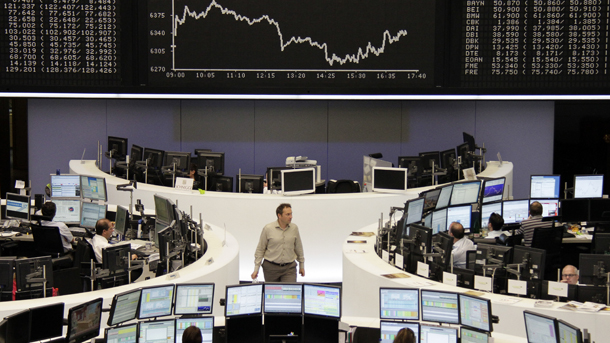Burma’s central bank and the Tokyo Stock Exchange (TSE) are expected to sign an agreement shortly to develop a national stock exchange, but economists and financial analysts see little prospect of early progress.
Reports have suggested that an outline agreement could be signed by the end of this month, however there is a mountain of problems to climb before any serious real-time exchange can be up and running.
Not least of the problems the TSE faces is a lack of corporate law and the absence of a corporate culture among most Burmese companies.
“Being charitable, one might call this [stock exchange] an aspirational rather than an immediately practical one,” Australian economist and editor of Burma Economic Watch, Sean Turnell, told The Irrawaddy.
Developing a strong and viable financial market and open stock trading system is a long-term process and requires political will as well as business commitment. It’s a problem facing much bigger and far more developed economies than Burma’s. For example, despite its strong influence on Burma’s economy, neighbouring giant China lacks a fully-fledged market system.
“China has transformed itself within a couple of decades into the world’s second largest economy, powered by a labor-intensive manufacturing sector. However, despite its vast production capacity and trade links with global markets, China lacks depth in its financial sector,” says a new study by Chatham House, the London think-tank.
“A close look at China’s international investment position as a percentage of global stocks shows that China’s foreign direct investment and international portfolio assets and liabilities are a tiny percentage—less than 3 percent—of total global stocks,” said the study.
The World Bank says decades of economic isolation from Europe and the United States have left Burma with an economy highly dependent on China.
That coupled with poor economic management by the military and its crony business friends “has resulted in a weak private sector and under-developed financial sector.
“[Burma] remains a primarily agricultural economy with the main share of its GDP derived from agriculture, livestock and fisheries, and forestry, although exports of gas and other natural resources are becoming increasingly significant. Manufacturing constitutes a small share of recorded economic activity, and state industries continue to play a large role in that sector,” the World Bank said in a report on Burma.
Finance industry analysts and even Burmese Finance Ministry managers have voiced concerns about the absence of any business structure in Burma, which is due to decades of domination by military-run firms or businesses with close junta links which are now forever tarnished.
The country still lacks a securities exchange law. And new draft foreign investment law failed to get finalized in the last session of parliament. It will be July before further parliamentary scrutiny and checks and balances on such legislation can resume, although backroom work is doubtless in progress.
The primary task of the TSE will be to help the central bank draw up exchange rules and give firm guidance on clean business codes. There is no practical system of company supervision in place; accounting standards are lax; tax avoidance is widespread.
“Private companies have started considering going public. But in practical terms, the current situation and business atmosphere are not favorable enough,” an unnamed central bank official was quoted by the Myanmar Times as saying last week. “The majority of our businesses are still weak in terms of corporate governance and corporate culture.”
The chief executive of emerging markets investment fund specialist Leopard Capital, Douglas Clayton, told AFP: “There are severe capacity constraints in human resources and physical infrastructure. [Burma] is simply not ready to absorb the tidal wave of projects foreigners can imagine starting there,” he said.
The Japanese trade ministry is still engaged in talks with the Burmese government on a new bilateral investment agreement aimed at smoothing the way into Burma for Japanese investors. These talks could continue for much of the rest of this year, although Tokyo has said it hopes for agreement by the time of the next Asean summit in November.
Markets consultancy Vriens & Partners, based in Singapore, thinks the reputational risk to prominent companies from moving into Burma are lessening since Western sanctions were eased, but that doesn’t mean the way in is any easier.
“The government has declared it wants to have Western investment. That doesn’t mean that they really understand what it takes to re-join the world,” Hans Vriens told the Chicago Tribune. “The regulatory system [the Burmese] have is so outdated.”
However, the involvement of well-run US companies ranging from manufacturing to natural resources “will help the country establish international best practices, the rule of law, increased transparency, respect for labor rights and environmental protection, and measures to rein in corruption,” said the Center for Strategic and International Studies in Washington.
But in a new report on Burma, the independent Center believes investors will face difficulties “until the basic business architecture is in place.”
“Beyond the ability to move money through international banks, US companies need efficient roads and ports and reliable electricity before they will build factories.”
Some finance industry opinion thinks it could be 2015 before Burma is anywhere near ready to open and operate an international-standard stock market.
For the moment, the country must make do with the backstreet Myanmar Securities Exchange curio. Established in 1996 by another Japanese financial agency, the Daiwa Institute of Research, this one-room midget exchange in Rangoon studiously tracks by hand the stocks of two just two companies, both partially government-owned.
It’s an image the reformers will surely want to lose.
















